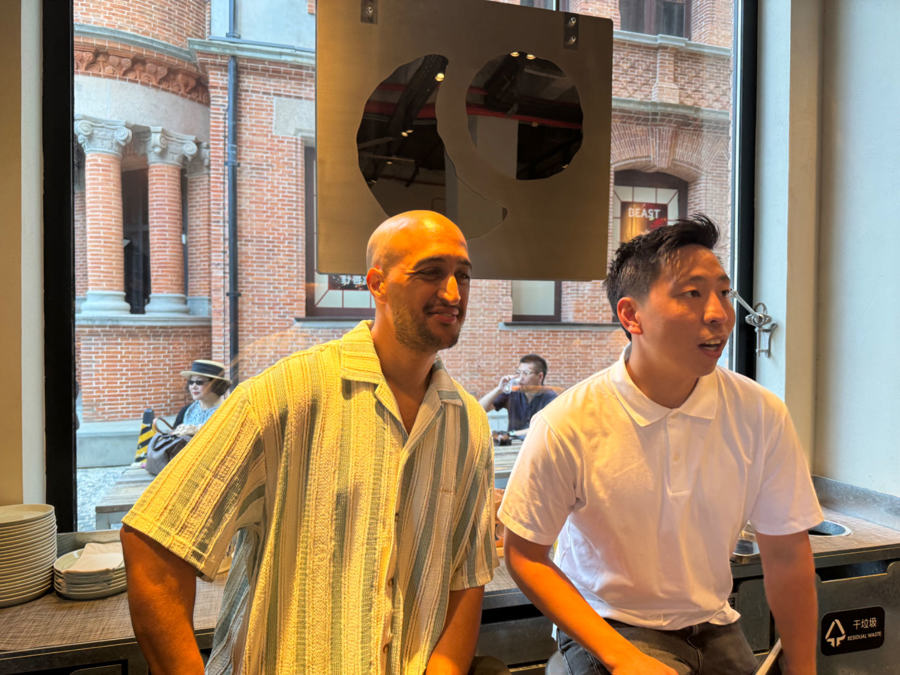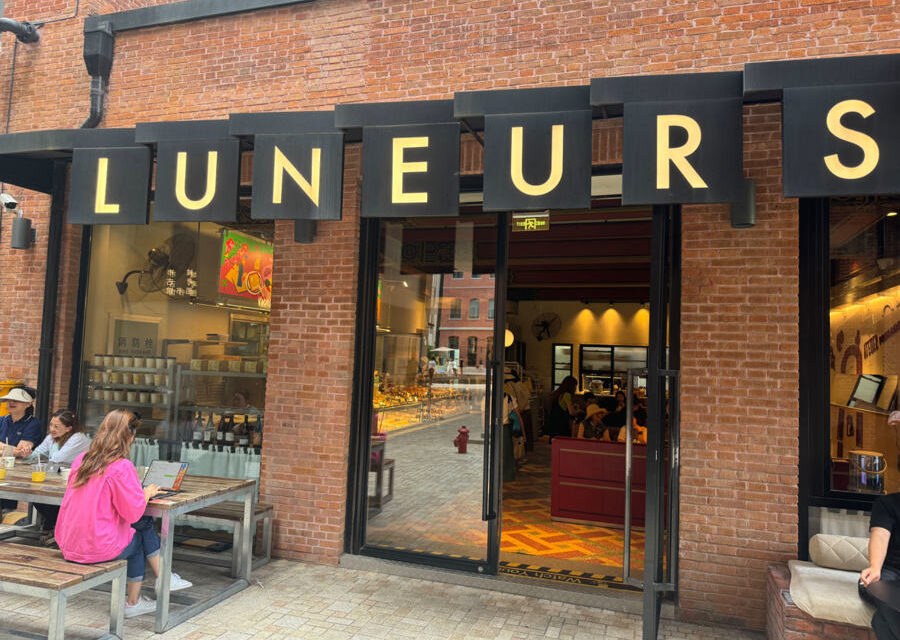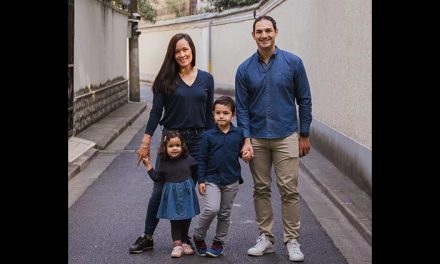Is it difficult to open a store? Of course it is difficult. Over the years, we have seen so many street shops open and close, and their signs changed again and again. But is there any business in this world that is not difficult? Yan Qian Xin, a Frenchman who started his own business in Shanghai, feels that the market is ups and downs, and that is how business is.
“When the market is good, no one says ‘Thank you, market’; when the market is bad, we can’t completely blame it.” He said, “We who open stores must make adjustments at any time.”
Yan Qian Xin is a French-Chinese. In 2018, he and several French friends opened a small shop selling bread and ice cream called Luneurs in Xingfuli on Panyu Road in Shanghai. Today, this small store has expanded to 15 stores in Shanghai.
On June 18, at his store in Bund Yuan, he talked about business methods in Shanghai. The sun shines through the glass walls into this modernist-style historic building. French flavor and Shanghai style blend together so perfectly.
Flexibility is perhaps the strongest flavor he has tasted in the past few years since he opened a store in Shanghai. Flexible government, flexible business partners, flexible customers. Of course, there is also the flexible self – the owner of a shop.
The story begins in Paris, France. Yan Qian Xin was born there to parents who were immigrants from Lishui, Zhejiang. Like many overseas Chinese families, Yan Qian Xin’s family also makes a living by opening a Chinese restaurant. “Whether a Chinese restaurant is authentic in France depends on whether there is a child doing homework at the door. I am the child doing homework.” Yan Qian Xin said.
Although he comes from a Chinese family and can speak Chinese fluently, Yan Qian Xin does not know the Chinese characters for his name. “My dad just told me that Yan means strictness,” Yan Qian Xin said.
“Go to Shanghai.” His parents told him, “Shanghai is an international city. If you succeed in starting a business there, you can succeed all over the world.”

In 2016, after graduating from a business school in France, he came to Shanghai. Two years later, he and several French friends opened the first Yueleshi restaurant in Xingfu.
As an entrepreneur, he felt the flexibility of Shanghai local government. Flexibility is first reflected in the simplicity and speed of registering a company. According to the latest “One Thing Work Plan for Opening a Restaurant in Shanghai”, opening a restaurant in Shanghai only requires filling out one form, and the processing time can be reduced from 42 working days to a maximum of 7 working days, a reduction of 83%. . Yan Qian Xin and his partners are both foreigners and are unfamiliar with Chinese policies. They asked various questions, but it didn’t matter. The government staff took the trouble to explain them until the store Yan Qian Xin had in mind. Become a physical store.
Flexibility is also reflected in Shanghai’s state-owned enterprises’ flexibility in housing rents. During the COVID-19 epidemic, many companies encountered operating difficulties. The Shanghai Municipal Government issued policies to encourage state-owned enterprise landlords to reduce or reduce rents for small and micro enterprises and individual industrial and commercial households. Some of Yueleshi’s stores have also enjoyed reductions and exemptions. Yan Qian Xin said: “Such a thing does not happen in France.”
If Shanghai has a flexible government, Yueleshi has flexible operators. For example, when opening branches, they do not require each store to be of the same style, but each store has its own characteristics; nor do they require each store to be similar in size, but to be large or small, with a minimum size that meets their location requirements. The largest one is only 50 square meters, such as the Bund Yuan store, which is 600 square meters; not even every store is a real store. In order to test new markets, they have opened stores in several second- and third-tier cities. A low-cost pop-up store.
Adopt a flexible business model because they have mastered the characteristics of Shanghai consumers: flexibility. Yan Qian Xin said: “Shanghai has convenient transportation and people are willing to ‘check in’ everywhere. For example, customers who live in Xuhui will go to new places on weekends, so each of our stores must give customers new experiences.” He I think this is very different from France, where most of the customers in a store come from surrounding areas.
The operators of Yueleshi also found that Chinese guests like to try new things. Therefore, every time Yueleshi enters a new city, it will launch local limited-edition ice cream. For example, in Chengdu, it is pepper-flavored, in Wuxi, it is peach-flavored, and in Suzhou, it is mint-chocolate flavored.
Of course, Yueleshi has also found several flexible partners in China. The company’s business development director Soufiane Khellaf often travels to various parts of China to discuss cooperation. Some potential partners do not speak English. What should I do? This is not a problem for them. They can always find friends or friends of friends who are good at English and sit with Khellaf.
After living in Shanghai for 8 years, Yan Qian often misses his hometown. When he sees the Suzhou River, he will think of the Seine River in Paris. He dreams that one day in the future, this French brand founded in Shanghai can open stores back to France. But that possibility is still in the distant future. Now, he and his partners are determined to do things well in Shanghai first, because the market here is too big and there are too many opportunities waiting for them.




Recent Comments